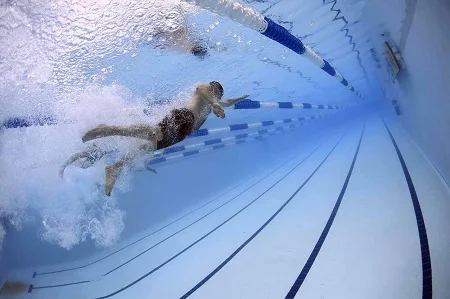THE UNEXPECTED EFFECT OF SWIMMING ON THE BRAIN
If you want to get active, why not try swimming? This sporting activity is renowned for its many beneficial effects on health. Swimming is particularly known to maintain your cardiovascular system. It involves all your muscle groups. Because of this, the heart is forced to work hard. Hence, it increases the blood flow in your body.
But the benefits of swimming don't end there. According to an article published on The Conversation website , this sport is also good for our brain health. Studies have shown that if practiced regularly, swimming improves memory, cognitive function, immune response and mood.
It would even have the ability to repair damage caused by stress and strengthen new neural connections.
Experiments carried out on rats
As of yet, researchers don't yet know exactly how swimming affects the brain. To see more clearly, they carried out experiments using rats. These animals are perfect candidates for this kind of research because they have genetic and anatomical similarities to humans.
The researchers then found that swimming stimulates brain pathways that suppress inflammation in the hippocampus and inhibit apoptosis, also known as cell death. According to them, swimming would also ensure the survival of neurons and reduce the cognitive impacts of aging.
Improve your brain health by swimming
After these experiments, scientists wanted to know how long the beneficial effects of swimming last. They then trained rats to swim for 60 minutes a day. These animals had to swim 5 days a week.
The researchers then tested their memory by having them swim through a maze that contained a hidden platform. The rats were allowed six tries during which they swam freely to find the platform. After seven days of training, scientists observed improvement in their short and long term memory. As the days went by, the rats made fewer and fewer mistakes in their journey.
As a result of this research, the scientists concluded that swimming could be used to repair the damage to memory and learning caused by neuropsychiatric diseases in humans.





